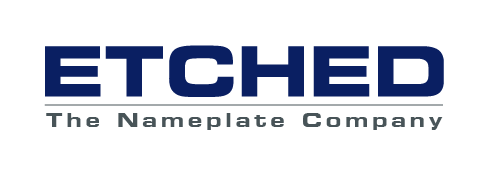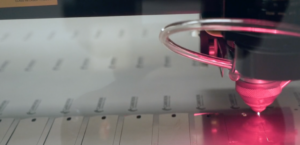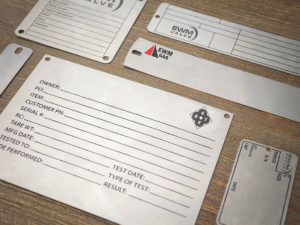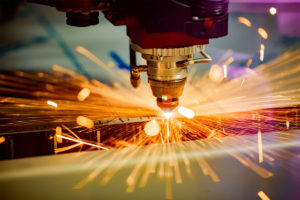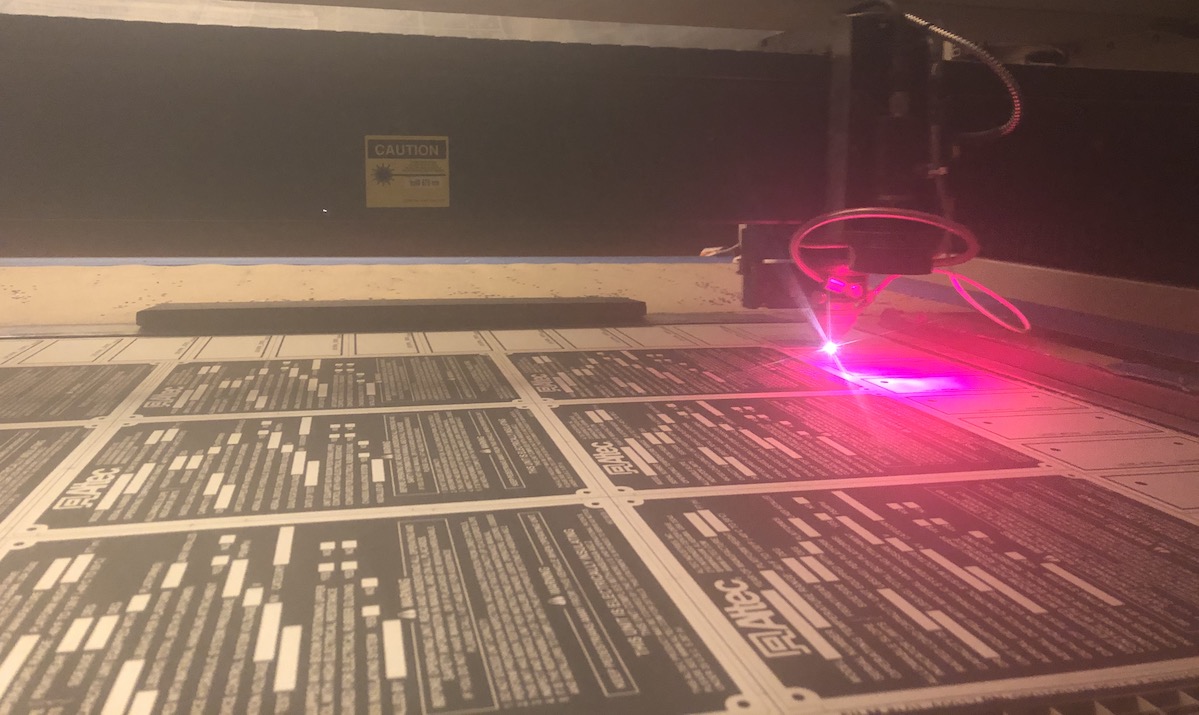
Industrial data plates play an important role in a wide variety of industries, displaying crucial information essential for efficient operations. At Etched, we specialize in crafting durable, legible data plates tailored to your exact requirements, using high-quality materials designed to withstand harsh industrial conditions. In this comprehensive guide, our experts will explain how to specify a custom data plate order, including how to select the best material and process type.
Choosing the right material for your industrial data plates
At Etched, we offer a range of materials for manufacturing industrial data plates, each with its unique advantages for specific applications.
Stainless steel data plates
Known for their durability, stainless steel data plates are an excellent choice for environments prone to corrosion and abrasion. If your data plates are installed in coastal areas or subjected to frequent transportation, stainless steel ensures longevity and readability.
We stock stainless steel in 0.018” – 0.125” thicknesses. Both 316 and 304 stainless steel are available in most thicknesses. When ordering data plates, you can also specify the finish option to meet your aesthetic preferences. The #4 finish contributes a shinier exterior to your data plate, whereas the #2B has a matte/duller finish.
Aluminum data plates
Aluminum data plates are particularly suited for industries where weight is at a premium, such as aerospace and transportation. While not as resistant to corrosion as stainless steel, aluminum plates are still durable and ideal for indoor applications or environments with milder conditions, and are significantly lighter weight than stainless steel. At Etched, we stock aluminum in 0.012” – 0.125” thicknesses, with other thicknesses available upon request.
Anodized aluminum data plates
Anodized aluminum data plates undergo a protective coating process, enhancing their resistance to abrasion and corrosion. They combine the lightweight nature of aluminum with added durability, making them suitable for both indoor and outdoor applications. You can also choose from various color options to match your branding or application requirements. At Etched, we offer anodized aluminum data plates in clear, black, blue, green, red, or yellow.
Plastic data plates
While less durable than their metal counterparts, plastic data plates offer high contrast and legibility, making them ideal for indoor applications where direct sunlight and extreme conditions are not a concern. They are available in different colors, providing flexibility in design.
Selecting the right process for your industrial data plate
At Etched, we have expertise in various processes to create durable and long-lasting industrial data plates, each offering distinct benefits.
Chemical etching
Chemical etching produces precise and durable markings on stainless steel, aluminum, or anodized aluminum plates. It offers excellent resistance to abrasion and ensures clear legibility throughout the plate’s lifespan.
Metalphoto processing
Metalphoto processing seals UV-stable images within anodized aluminum, providing unparalleled durability and resistance to chemicals, abrasion, and environmental elements. It is a popular choice for industries requiring long-lasting, legible markings.
Laser engraving
Our fiber and CO2 lasers deliver durable markings on a variety of materials, including stainless steel, aluminum, anodized aluminum, and plastic. While fiber lasers offer depth and durability, CO2 lasers can create true black marks.
Rotary engraving
Rotary engraving offers precision and repeatability, making it ideal for high-volume orders. At Etched, we use an engraving bit to cut a groove an average of 0.003 to 0.007 inches into the material, which can then be filled with paint for enhanced contrast and legibility.
Screen printing
Screen printing is a cost-effective solution for indoor applications, creating crisp and clear images on industrial data plates. Since this process type isn’t as durable as engraving or etching, it is less suited for abrasive or corrosive environments.
Choosing the right industrial data plate supplier
Partnering with a reliable industrial data plate supplier is essential for ensuring quality and efficiency. Here are a few key questions to ask when electing a supplier:
- What are your minimum and maximum order quantities?
- What is your standard lead time for orders? Do you have options for rush orders or expedited shipping?
- What materials do you use for your industrial data plates, and how do you ensure that those materials are high-quality and long-lasting?
- Do you have any processes in place to make reordering data plates quick and easy?
- Do you manufacture your data plates in the United States?
Have more questions? Get in touch.
Still not sure which material or process option is right for your application? Our team of industrial data plate experts would love to help. Get in touch with us today!

